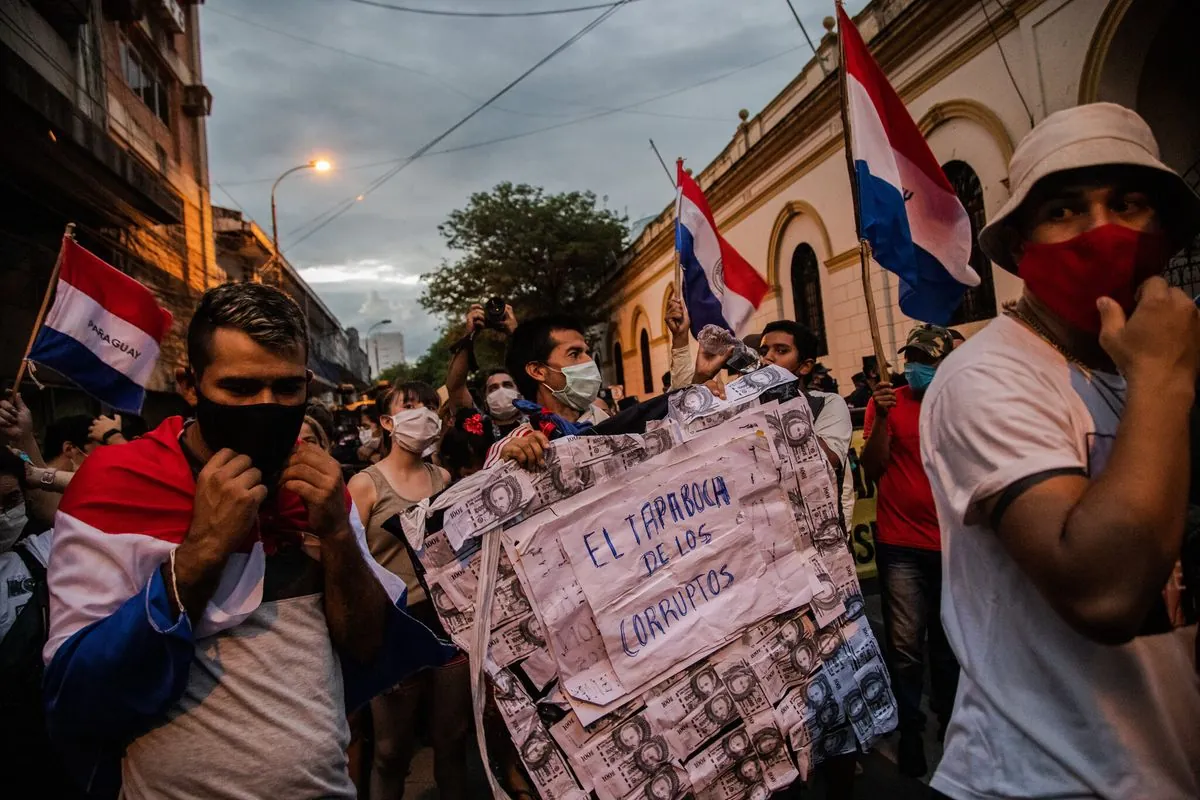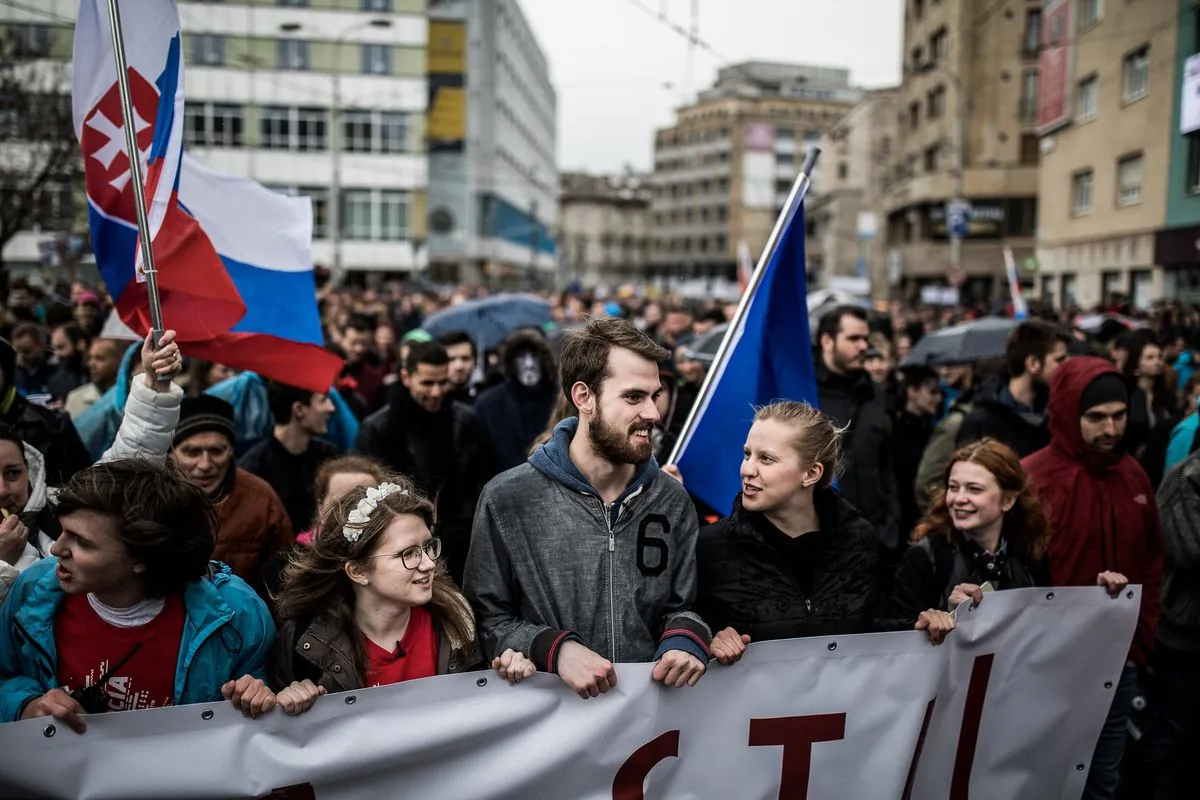Paraguay Grapples with Stroessner's Shadow 70 Years After Coup
Seven decades after Alfredo Stroessner's coup, Paraguay faces democratic challenges. Recent protests highlight concerns over civil liberties and the lingering influence of the dictator's 35-year reign.

Seventy years and one day after General Alfredo Stroessner seized power in Paraguay, the nation continues to grapple with the legacy of Latin America's longest-ruling dictator. On August 15, 2024, hundreds of demonstrators gathered in Asunción, the capital, chanting "Never again, dictatorship" in a rare display of public dissent.
The protest marks not only the anniversary of Stroessner's 1954 coup but also one year since President Santiago Peña's inauguration. This convergence of dates highlights the ongoing struggle between Paraguay's authoritarian past and its democratic aspirations.
Emilio Barreto, an 84-year-old whose father was a unionist, reflects on the country's journey: "We've been through 35 years of dictatorship and 35 years of so-called democracy." Barreto is among the estimated 20,000 Paraguayans who endured torture and imprisonment without charge during Stroessner's rule.
The demonstration was led by Paraguay's opposition, including Kattya González, a center-left senator expelled from the Senate in February 2023. González, who had secured the third-highest vote count in the previous year's legislative elections, was removed by allies of former President Horacio Cartes, a powerful figure in the ruling Colorado Party.

Human rights organizations have expressed concern over recent government actions. Hugo Valiente from Amnesty International in Paraguay notes a "curtailing of civil liberties" and measures that discourage freedom of association. These concerns were amplified when the Senate swiftly passed a bill expanding government powers to audit non-profit organizations, a move critics say mirrors tactics used in authoritarian regimes to stifle civil society.
Paraguay's struggle with its past is evident in its approach to historical memory. Unlike neighboring Argentina, which has convicted hundreds of military officers for dictatorship-era crimes and identified 800 victims, Paraguay has made limited progress in addressing its authoritarian legacy. Public schools often avoid discussing the 20th-century dictatorship in history lessons, and only four victims' remains have been identified to date.
Rogelio Goiburú, who oversees victim recovery efforts for the Justice Ministry, laments the lack of state support for these initiatives. "In our country, this history of the dictatorship is hidden, there's no policy of memory," he says.
The Colorado Party's enduring influence, which has dominated Paraguayan politics for most of the past century, is seen by some as a continuation of Stroessner's legacy. Historian Milda Rivarola explains, "The totalitarian control of Stroessner created a real identification between political party and the state."
As Paraguay navigates its democratic path, the echoes of Stroessner's regime persist. The country's high income inequality, its economy's dependence on agriculture, and the ongoing challenges to civil liberties serve as reminders of the complex legacy left by 35 years of dictatorship. The struggle to balance historical reckoning with forward-looking governance remains a central challenge for Paraguay's democracy.
"Let's remember the moment we knocked down the statue for its symbolism against what the dictatorship was."


































